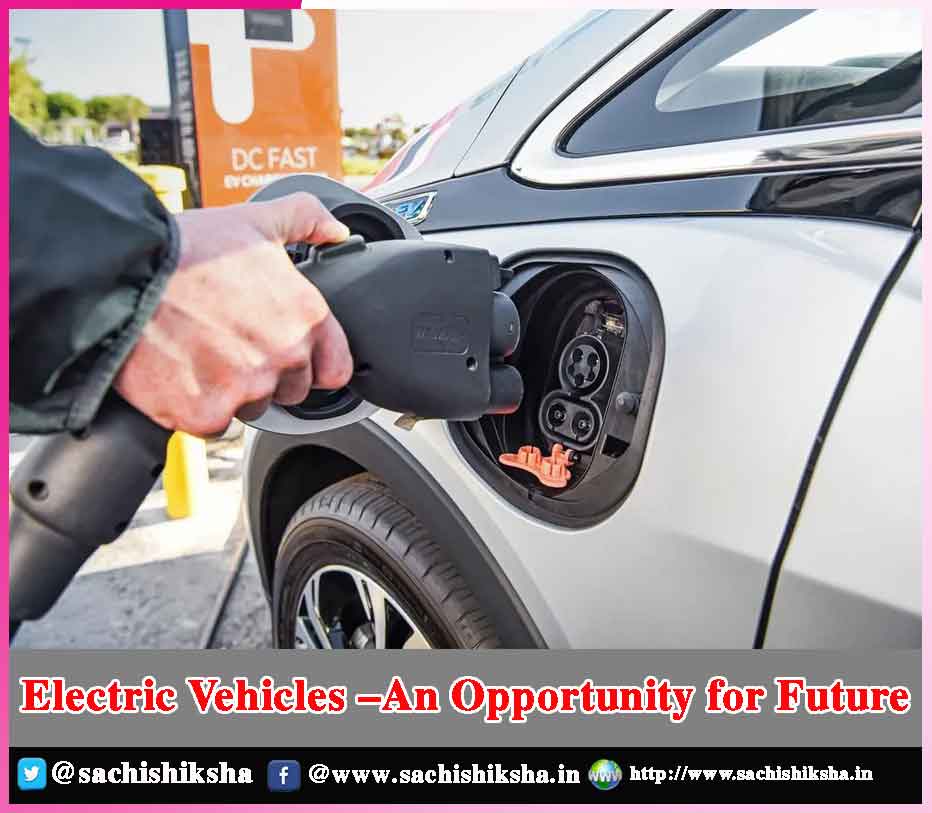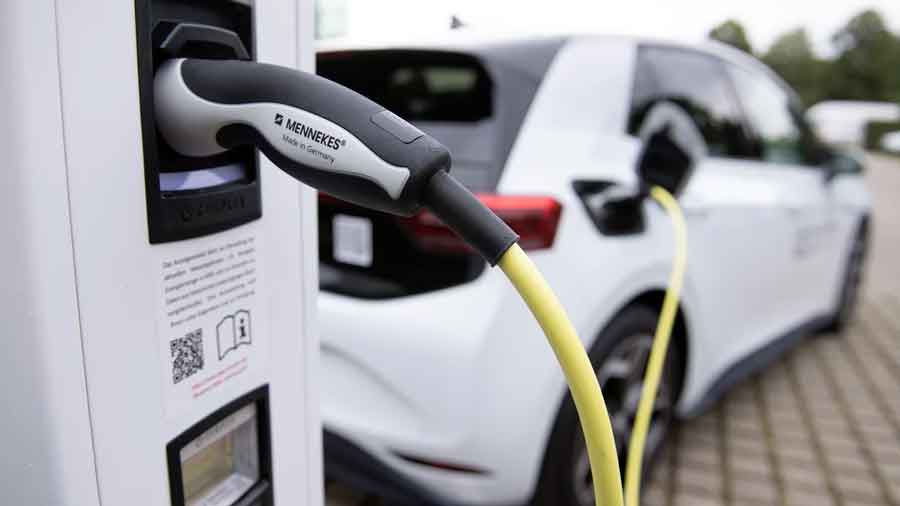Electric Vehicles –An Opportunity for Future
Introduction: An electric vehicle (EV) is one that runs on electricity rather than an inner engine, which produces power by combusting a mixture of fuel and gases. As a result, such a vehicle is viewed as a potential substitute for existing automobiles in order to tackle problems such as rising pollution, global climate change, steadily declining natural resources, and so on.
owever the principle of electric vehicles has existed for a long period of time, it has gained a lot of attention in the last century due to the increasing carbon footprints and other environmental consequences of fuel-based automobiles.
Also Read:
Table of Contents
First Effort to Motivate Electric Vehicles in India:
The first tangible effort to incentivize electric vehicles was made in India in 2010. The government declared an economic motivation for manufacturers of electric vehicles sold in India under Rs 95-crore scheme approved by the Ministry of New and Renewable Energy (MNRE). The scheme, which went into effect in November 2010, created benefits of up to 20% off ex-factory vehicle prices, relating to a cap. However, the MNRE afterwards cancelled the incentive program in March 2012.
Indian EV Market in 2020:
The year 2020 was a difficult one for industries around the world, particularly for electric vehicles (EVs), which saw confined domestic manufacturing. However, as the pandemic was taken under control, constraints were laid back, and individuals became more concerned about the environment,
the EV manufacturing industry experienced self assured growth, positioning itself to become one of the world’s leading EV markets. Thus, according to statistics, the Indian EV market, which was valued at $1,435 billion in 2021, is projected to increase to $15,398 billion by 2027, with a CAGR of 47.09% between 2022 and 2027.
Reasons for Adoption of EVs:
Hike in fuel price are a big motivator for vehicle owners and prospective customers to take a gander for budget alternatives, and EVs meet those criteria. Electric mobility will generate new electricity demand for India, assisting with the broader adoption of sustainable energy in the transportation sector. EVs create significant improvements in efficiency.They are also capable of lowering carbon dioxide emissions and reducing noise and air environmental damage.
EV Startups:
The advancement of the Indian EV market can also be evaluated by the increasing number of EV startup companies producing everything from two-wheelers to four-wheelers, hybrid and electric vehicles, e-carts, and massive EVs. Numerous state governments, in addition to venture capital and venture capital players, are assisting in the expansion of EV startups through regulations, grants, and proposals. An intriguing aspect of technology is that when a new technological discovery occurs in one part of the world, it quickly expands as others start adopting the very same.
EV Market in Europe:
The first automobile was built in the 1800s in Germany and France; however the innovation quickly spread to America and the world as a whole. China has already moved swiftly to safeguard a firm hold in the EV market, realizing that EVs will indeed provide a straightforward path towards becoming the world’s largest automotive player. A strong battery manufacturing industry, comprehensive charging infrastructure, and government incentives have impelled European countries such as Sweden and Germany to the top spots in the rankings.
Indian Govt`s Motivation for EV Market:
In India, the government has given EV companies a substantial improvement with the incorporation of the FAME I and II schemes, the increase in performance of e-charging facilities, the decrease of the Goods and Services Tax (GST) on EV purchase decisions, and the provision of Rs 10,000 crore in subsidization.
These strategies, along with PLI schemes, depreciation policies, and the Make in India action plan, establish the foundation for wide – spread EV manufacturing and adaptation in the nation. The Indian market, on the other hand, is valuation. Indian consumers have always been looking for the best deal, which puts more pressure on pricing — a common occurrence in developing industries.
Overall Reliability of EVs in India:
Many such pressures can sometimes have an influence on the overall reliability of the electric vehicle, which must be constructed for Indian conditions, weather, and roads.
Battery:
Batteries must be consistent not only with the country’s humid and hot climate, but also with excessive traffic conditions, and only a strong Battery Management System (BMS) can guarantee safe and dependable performance. Vehicles and components designed for cold regions will not perform well in India. In India, the EV sector is in its infancy. We have yet to witness a complete life cycle of a couple of generations of EVs. EVs are thought to require less servicing than gasoline-powered vehicles.
Safety:
Each of these variables has an influence on one critical factor — safety. India’s EV revolution will be successful only if all stockholders view it with the objective of informing end-users about how safe EVs are for everyday use. In April 2022, Eren Groupe, a European renewable energy company, accumulated one of the world’s most energy dense batteries, Pravaig, created by a Bengaluru-based battery startup, for its storage technologies.
With such a higher densities, the battery provides more power for every atom, having proved to be significantly cost-effective than alternative solutions such as sodium-ion or aluminum air. The battery’s developers also stated that it takes only 30 minutes to completely charge a battery. Several industry leading participants, such as OLA Electric Mobility Pvt, Ather Energy, and Mahindra Electrics, are expanding rapidly their presence in the market in response to the possibility that India’s EV industry presents.
EV Policy of Govt of Haryana:
Haryana has decided to join other states in authorising its EV policy in June 2022. The policy establishes a comprehensive strategy for transforming Haryana into an EV production base while also creating a process of assisting to accelerate EV adoption through the advancement of charging points, developing skills, and R & D in EV technology. Indeed, the Haryana state government has declared 2022 to be the “Year of Electric Vehicles.”













































